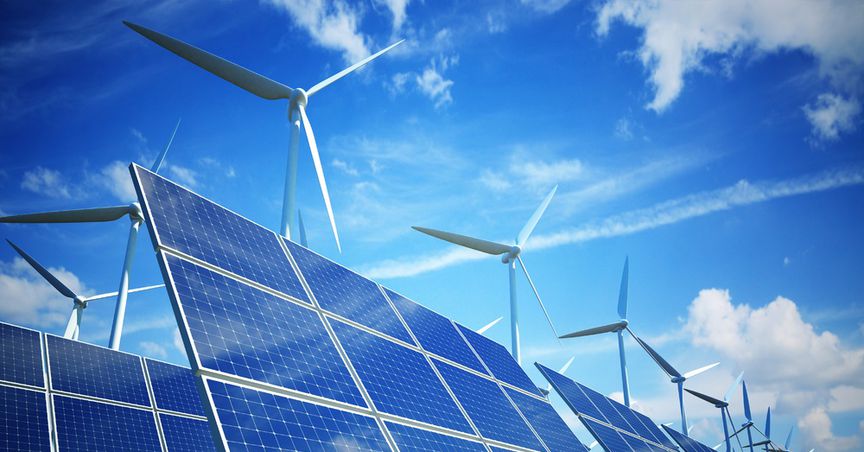Summary
- The extension of price cap on standard variable energy tariffs have resulted in savings of between £75 to £100 a year for the average UK household
- The cap was introduced in 2013 to stop power companies from profiteering, and Ofgem has been chalking out plans to offer help for struggling households
- Power companies have faced minimal impact on their operations during the unprecedented crisis, but the extension in price cap is likely to impact their revenue
In a bid to reduce the burden on the average household grappling with the pandemic crisis, the British government is likely to put a cap on the winter energy bills of altogether 15 million households until the end of next year.
The price cap will protect less engaged customers such as the elderly and most vulnerable from being charged excessive prices. The extension of the cap on standard variable energy tariffs have resulted in savings of between £75 to £100 a year for an average home, which is charged using standard dual fuel energy tariff.
Also read: Will Higher Energy Bills During Winters Support Electricity Suppliers?
The cap was introduced in 2013 to stop power companies from profiteering. Energy regulator Ofgem has been chalking out plans to offer help for struggling households that are likely to default on their winter energy bills. The struggling customers could be offered debt repayment plans or emergency credit if required.
Also read: Coronavirus impact-Ofgem reduces energy price cap limit
Let us put our lens through some of the listed power generation companies in the UK.
- Greencoat UK Wind Plc
Greencoat UK Wind Plc (LON:UKW) is a renewable infrastructure company which underscores its investment in wind farms and other renewable energy projects. Greencoat’s wind farms have increased the generating capacity from 127 MW to 998 MW since its IPO. Over the years, it has delivered an incremental cash generation and distributed a lucrative dividend to the shareholders.
The Covid-19 pandemic and lockdown may have caused extreme volatility in power prices in the near term. However, the company has been able to generate robust cash flows despite the odds. Overall the energy company has delivered resilient performance from the existing portfolio and is having a healthy pipeline of investment projects to drive growth in the long-term.
Despite the challenges in the trading environment, the company declared a dividend of 3.55 pence per share during the first half of 2020 (H1 2019: 3.47 pence). However, there are certain factors which could impact the profitability of the company in the near term. Another lockdown can drive the market price of electricity downwards, which might impact the profitability of the company. During the peak of the unprecedented crisis, the demand for energy was substantially down. Moreover, policy changes implemented by the government in the energy sector can impact the performance of the company.
UKW shares created a bottom of GBX 102 during the peak of the unprecedented crisis (March). Since then the UKW shares have delivered a price return of 32.75 per cent.
- ContourGlobal Plc
ContourGlobal Plc (LON: GLO) is a FTSE-250 listed Power Generation Company with thermal and renewable power plants spanning across several countries. The company delivered a strong financial performance with adjusted EBITDA up by 13 per cent during the first half of 2020. The company’s performance remained unfazed by the outbreak of Covid-19, and there was no hard impact on its operations.
For the second quarter ended 30 June, the company approved a quarterly dividend payment of USD 4.0591 cents, and it targets a 10 per cent year-on-year growth in dividends, as it has a visible pipeline of projects focussed on low carbon technologies to drive future growth.
GLO shares created a bottom of GBX 136.60 during the peak of the unprecedented crisis (March). Since then the GLO shares have delivered a price return of 41.87 per cent.
Also read: Future of UK Energy suppliers as the furlough scheme ends, Focus on Centrica
- Drax Group Plc
Coronavirus pandemic has been the biggest challenge during the first half of 2020 for the power generation company Drax Group Plc (LON:DRX). The company witnessed a significant reduction in electricity demand during the peak of the unprecedented crisis along with an increased risk of customer business failure and bad debt that has led to an estimated impact on adjusted EBITDA of £44 million. The company has constantly been evaluating biomass projects for capacity expansion and cost reduction.
The company’s adjusted EBITDA was up by 30 per cent to £179 million during the first half of 2020 (H1 2019: £138 million). The energy company also declared an interim dividend of 6.8 pence per share (H1 2019: 6.4 pence per share) for the first half of 2020. Despite the challenging trading environment, the company expects full-year dividend (2020) to be up by 7.5 per cent to 17.1 pence per share (2019: 15.9 pence per share).
DRX shares created a bottom of GBX 126.40 during the peak of the unprecedented crisis (March). Since then the DRX shares have delivered a price return of 138.61 per cent.
- Good Energy Group Plc
Led by business supply volume growth, Good Energy Group Plc (LON:GOOD) reported an increase in revenue by 6.2 per cent to £67.5 million during the first half of 2020 (H1 2019: £63.5 million). If the trading environment improves, the Company is expected to reinstate dividend payments in 2021.
The company’s business model remains highly cash generative with £7 million of cash generated from operations during the first half of 2020 (H1 2019: £3.1 million).
GOOD shares created a bottom of GBX 123.50 during the peak of the unprecedented crisis (March). Since then the GOOD shares have delivered a price return of 31.17 per cent.
The electricity companies have faced minimal impact when compared to other businesses in the UK. With another lockdown in sight and the economic downturn associated with it, people might struggle to pay debts, and the near-term outlook remains uncertain. Most of the power companies have witnessed lower demand during the peak of unprecedented crisis which has impacted their earnings during the period. The price cap extensions may be supporting almost 15 million households in the UK through savings on energy bills, but in turn, it could impact the earnings of the power companies.




